Last updated on March 29th, 2022 at 10:15 pm
The Engine Control Module (ECM) is essentially the brain-computer of a car. It monitors and collects data from various sensors and trackers in different parts of the vehicle. The data is then processed and used to ensure the engine performs as intended. As the name suggests, ECM is all about engine performance and can help in the diagnosis of engine and transmission problems. The ECM is also sometimes referred to as the PCM (power-train control module), which consists of the engine control unit (ECU) and the transmission control unit (TCU).
The ECM houses different codes, protocols and standard diagnoses for troubleshooting engine performance. This includes MAS (mass airflow sensors) and triggers that can let you know something is wrong. For instance, if the check engine light goes on, and your ECM if fully functional, it may indicate a myriad of possible problems with your engine.
In most cases, there are codes and diagnosis standards that can help a mechanic pin down the problem. However, sometimes the ECM is at fault. It may be faulty, partly damaged, or completely damaged. Whichever the case, it is essential to get your ECM checked as soon as possible. Here is a brief look at a couple of reasons that would cause your ECM to go bad, including the symptoms to help you diagnose a faulty or damaged unit.
- Corrosion, moisture and solenoid damages
Corrosion on the wiring harness and increased moisture are common causes of faulty ECMs. These elements may both lead to ECM shorts or electric surges and voltage problems that cause faulty readings and codes. Moisture may enter through corroded ECM seals, which is common in old cars (5 to 10 years). Moisture may also corrode the wiring harness around the electronic fuel solenoid and cause a short in the ECM. The solenoid also gets old and suffers corrosion by itself. Most corrosion and moisture damages occur due to aging and continued exposure to the elements. Injector and sensor wiring harness will eventually suffer corrosion and the fuel solenoid may also begin to corrode the weakening parts. If your car was running well and then failed to start, the ignition may have shorted the ECM.
- Starter, battery and grounding issues
If you have replaced a starter with a newer model, you may damage your old ECM. Most modern starters by-pass the crucial voltage regulator that ensures the power entering your ECM is controlled. This may result in voltage problems and your car may short the ECM on ignition. Dead cells and batteries, bad jumpstart practice and loose grounding, can also result in faulty inputs and problem codes. Bad grounding and loose wires in the ECMs harness can also result in blow-ups and short circuits. Other causes include welding damages, physical knocks and accidents that may leave the ECM and battery grounding loose.
Signs of a bad ECM
The car can run with a faulty or bad ECM with periodic erratic performance. However, the longer you wait, the more damage you inflict on the car. There are various symptoms of a bad engine control module. Even so, most symptoms can stem from problems other than the ECM. Whether it is the engine stalling or failure to start scenario, causes of engine performance issues are diverse and have overlapping common symptoms. However, a bad or failing ECM will manifest the following:
The engine fails to start, stalls or misfires
If your car fails to start and the problem isn’t a bad alternator or battery, it may stem from a faulty engine control unit. This may happen when the inputs into the ECU aren’t within the required range or timing to cause ignition. A stalling or misfiring engine may also suggest faulty PCM.
Check engine light is on
The check engine light comes on to suggest a possible issue with the engine. It triggers a series of different codes to pinpoint the problem and restore optimal engine performance. However, when everything in the car seems fine, but your check engine light is still on, the issue might be a failing ECM. The mechanic will also look for problems in the wiring harness.
Erratic engine performance Caused by the ECU
A failing or bad PCM will give erroneous inputs and result in poor combustion and various performance issues. If your car’s engine is losing its power, consuming more fuel, producing more smoke, colored emissions, or strange smell, the problem may lie in a bad ECM. In most cases, the car may continue working or have periods of reduced performance.
Transmission issues
If your automatic transmission is showing erratic behavior like sudden jacks and delayed gear shifts, the ECM is among things you should get checked. Since it houses the transmission control unit, problems with these computers may result in a chain of events that affect your car’s transmission. Generally, if your transmission isn’t as smooth as you know it to be, check for any indications in the dashboard or have your ECM checked.
Conclusion
There are several other symptoms of a bad or failing ECU. For instance, if nothing shows on your dashboard or only some parts brighten up, it is an electrical component, which could be a faulty ECM circuit board. Usually, if the symptom has to do with engine performance and transmission, your power-train control module is among the components you should inspect. Most ECMs ( engine computers ) come with a lengthy warranty and are safely tucked in a solid framework in the car, so problems will frequently arise after several years of use. When this happens, it is essential to get your engine ECU checked by an experienced mechanic.
Several symptoms may highlight a faulty ECM ranging from the check engine light on the dashboard to erratic engine performance, transmissions and combustion issues.
The car will have trouble starting, SKIM might go off . You should get it checked and repaired or replaced as soon as possible, or your engine may fail.
Yes. For instance, if only part of the ECM is faulty, you can send it to us at Flagship One for a quick repair and if you are experiencing a lost of connection in the unit, you don’t need to replace the entire unit, FS1inc can help.
Yes. The PCM harbors codes that affect the ECU and transmission control unit ( engine computers ) and problems in the ECM may impact your car’s transmission.



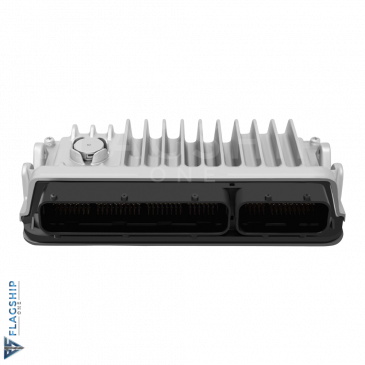

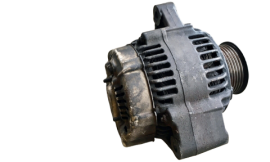

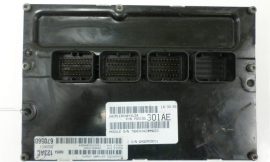


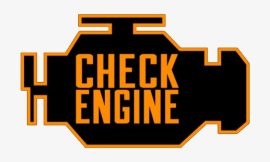

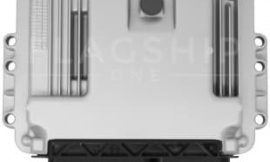


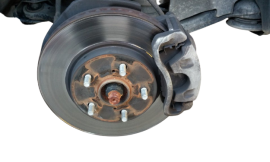

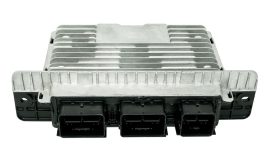


hi! i got a 2005 Subaru Forester X, CEL came ON plus the Cruise Control blinking… the Vehicle RUNS FINE, Everything Works when i plugged an OBD and it says “ENGINE MODULE $10” any suggestion?
Can a front end accident cause the BCM and PCM failure?